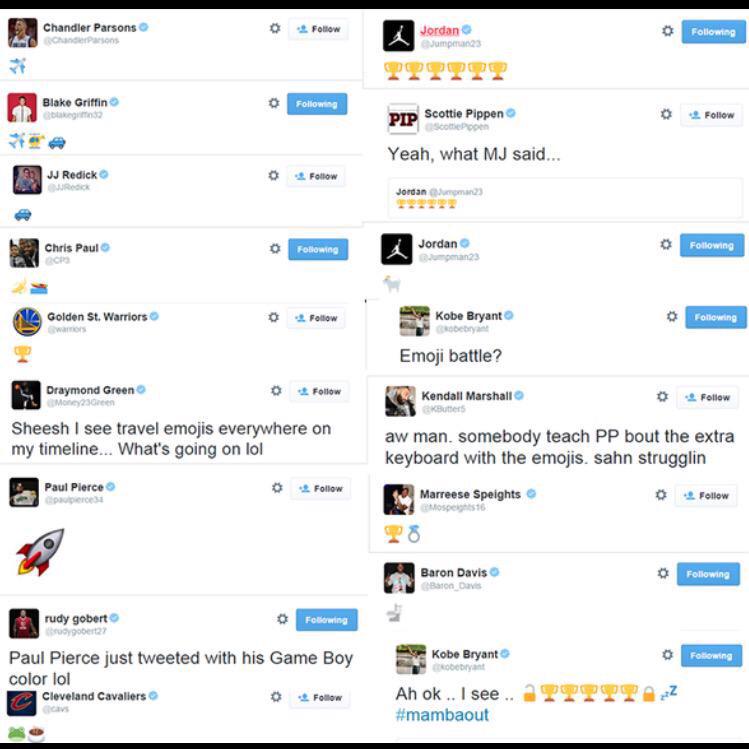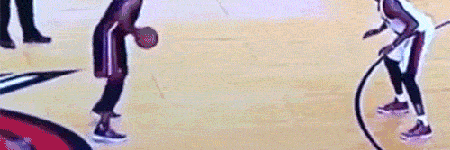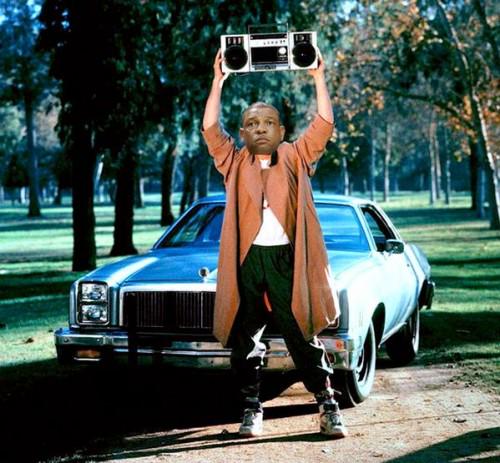That they spring so quickly to mind for so many demonstrates how indelibly this sort of business skullduggery etches itself into the sport's collective memory. As former Nets executive Bobby Marks noted via Twitter, the Clippers' involvement in rushing to re-recruit Jordan at the last minute, violates one of the NBA's "unwritten rules."
With that in mind, I was probably too quick to absolve the Clippers of any blame in the situation. The best you could say about it is that it's a bit on the nose. At the same time though, I think responsibility ultimately rests with the person who would be reneging on their verbal agreement, that being Jordan himself. Sure, the Clippers may be breaking an unwritten rule, but Jordan's the one who is giving them the time of day and would be the one who breaks his word. You can say it's dirty pool by the Clippers, but Jordan could very easily say "Sorry, no, it's far too late for any of that". He's apparently not saying that, and that's on him.
In the summer of 2004, Cleveland had an option to keep forward Carlos Boozer for $700,000, a modest salary for 2004-05 given Boozer's 15.5 points and 11.4 rebounds during LeBron James' rookie season. Instead, with what was reported to be a handshake deal with Boozer and agent Rob Pelinka on a six-year, $41 million package, the Cavaliers released him from that one-year contract. Instead of re-upping, though, Boozer signed a six-year, $68 million deal with Utah.
Cleveland rightfully felt burned, even though technically their wink-wink arrangement would have violated NBA salary-cap rules.
That last fact makes it a rather interesting situation to look back on. No doubt, Boozer did not act in good faith there, and any criticism of the way he and Pelinka handled the situation is completely justified. But it is interesting to note that the Cavaliers were technically preparing to violate the rules there. Sure, they got screwed by Boozer, but they were looking to screw the whole system. It doesn't justify what Boozer did, of course, but it does make Cleveland slightly less sympathetic, in my opinion. After all, they were looking to be sneaky, too.
Hedo Turkoglu was a hot commodity as free agency opened in July 2009. Early in the process, the 6-foot-10 forward went to dinner with Portland coach Nate McMillan and GM Kevin Pritchard, telling them, "I want to be a Blazer." Then he abruptly broke off further talks and signed a $53 million sign-and-trade deal with Toronto.
I'd forgotten all about that. Then again, in the years that have followed, it's easy to forget that Turkoglu was at one point a highly sought after free agent.
The NBA was in full scramble mode coming out of a lockout that cut the schedule to 50 games. So it was January, and when an indecisive McDyess -- in Denver to meet with the Nuggets -- reached out to teammate Jason Kidd by phone, the Suns sprang into action. Kidd, Rex Chapman and George McCloud grabbed a flight to Denver, then pulled up to McNichols Arena in a rented limousine. In a snowstorm.
That's as far as they got, too. Dan Issel, Denver's coach and GM, knew the Suns were coming for McDyess, so he instructed security and ticket vendors -- the Colorado Avalanche were playing at the arena that night -- not to let Kidd, Chapman or McCloud into the building.
McDyess wound up signing with the Nuggets, keeping his verbal commitment.
These days, wars are fought with emojis. Back then, things got a little more extreme.






